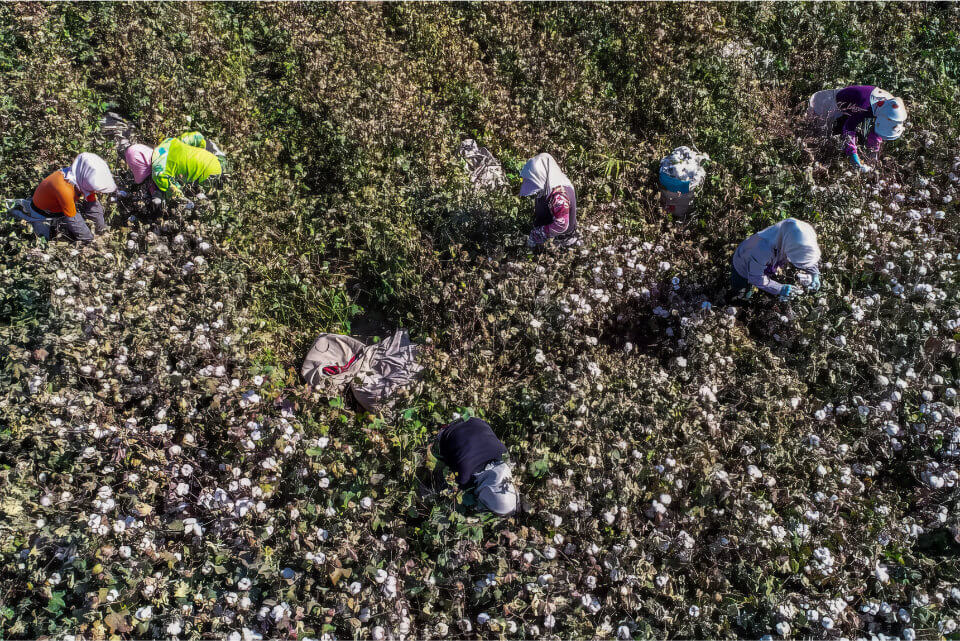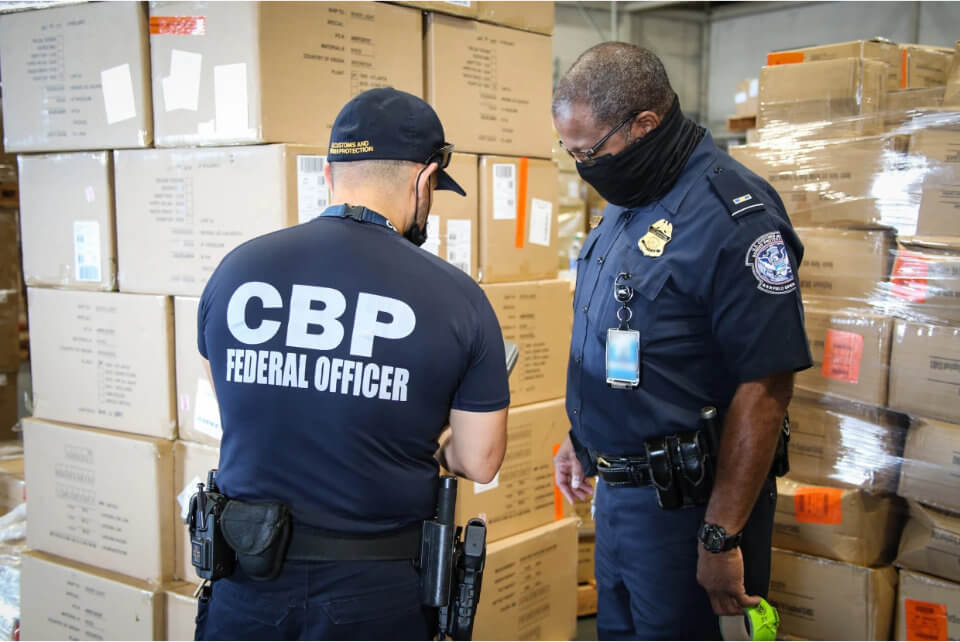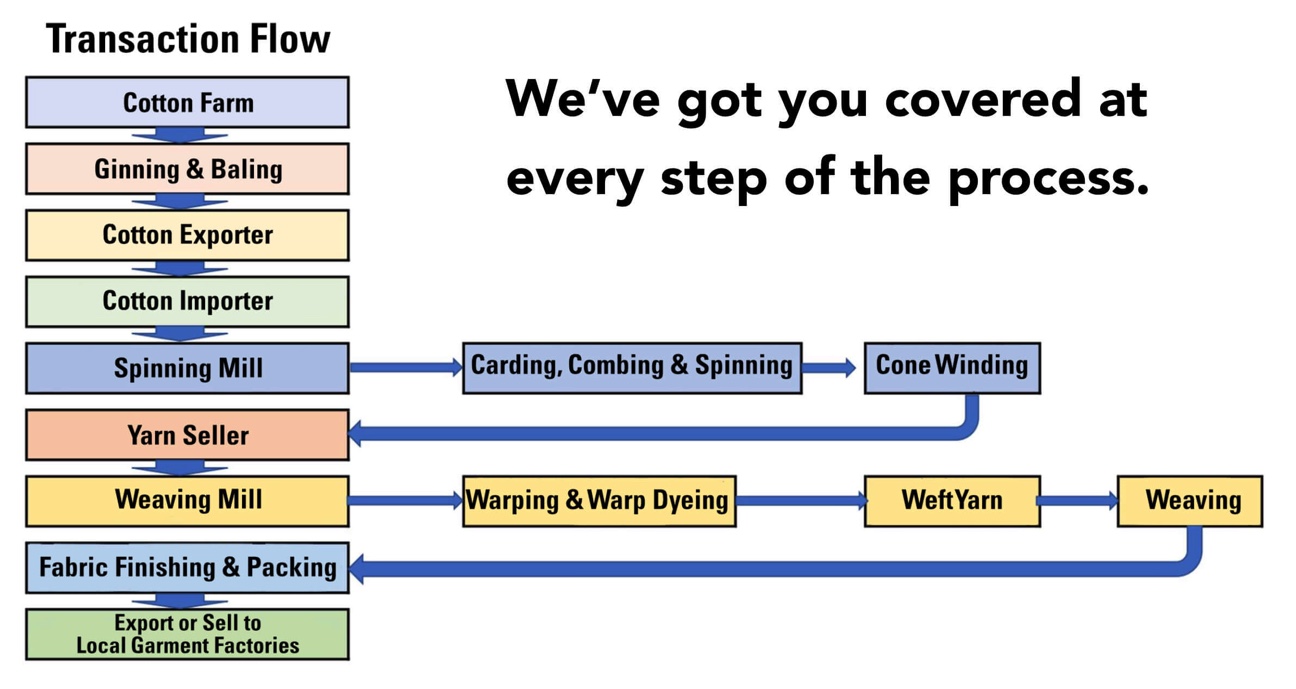Reports from human rights organizations and media outlets have documented forced labor in a range of industries, including textile and apparel manufacturing, electronics, and agriculture.

Workers harvest cotton in the Xinjiang region of China.
What this Law Means to You
It’s important to note that the United States Customs and Border Protection will seize any products without sufficient documentation, so it’s critical to be aware of your supply chain’s traceability.

CBP officers inspect goods for import
Be Confident about Your Cotton
At EdwardsX, we take this issue seriously, and we want you to be confident that our cotton products are free from forced labor. Our rock-solid system for tracing cotton chain of custody ensures that our products are ethically and sustainably sourced, and there’s no risk of your orders being blocked from entering the USA.
We believe that ethical sourcing is not only the right thing to do but is also good for business. As consumers become increasingly conscious of the products they purchase, it’s crucial to ensure that our supply chains are transparent and responsible.
If you are planning to import cotton-based products into the USA, get in touch with us to help you make sure you are set up for success.
We’ve got you covered at every step of the process.
